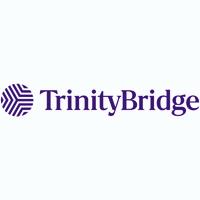10 tips to help employees secure their family’s financial future

How important is it therefore, for you to help your staff protect the people they love and the things they’ve worked hard for?
Estate planning is an important part of wealth management, no matter how much wealth you’ve built up. Not only does an estate plan help to ensure that those you care about the most will be taken care of when you’re no longer around, it can also help minimise inheritance tax (IHT) liabilities, and ensure that assets are transferred in an orderly manner.
Without a robust estate plan, no one can be exactly sure of your final wishes, and this can make the process of dividing up an estate quite complicated. With that in mind, here are 10 estate planning tips that could help your employees develop an effective plan for the future.
1. Write a will
One of the most important components of an estate plan is a will. This is a legal document that lists how you would like your assets distributed in the event of your death. If you die without a will, there are certain rules that dictate how your assets will be allocated, meaning they may not be distributed the way you envisioned. In the UK, a will needs to be formally witnessed and signed to make it legally valid.
While you can write a will yourself, it’s sensible to get financial advice if your will is complex. The more detail included in your will, the less chance of confusion when the time comes to pass on your assets. A will should also be reviewed regularly in order to ensure that it’s still appropriate.
2. Make a Lasting Power of Attorney
Making a Lasting Power of Attorney (LPA) is another crucial part of the estate planning process. This is a legal document that appoints one or more people to make decisions on your behalf. If you lose the mental capacity to manage your own finances in the future, an LPA will provide you with an element of protection. Those nominated as attorneys should be informed so that they are aware of their duties.
3. Plan for inheritance tax
Once the will and the LPA are sorted, the next step is to think about inheritance tax planning. When not planned for in advance, inheritance tax can come as a shock to family members and potentially cost them a lot of money. In the UK, a record £5.4 billion was collected in inheritance tax receipts in the 2018/2019 financial year. So it’s important to understand the value of your assets and plan ahead in order to minimise IHT liabilities.
4. Gift assets while you’re alive
An important to remember when developing an estate plan is that the process isn’t just about passing on your assets when you die. It’s also about analysing your finances now and potentially making the most of your assets while you’re still alive. By gifting assets to younger generations while you’re still around, you could enjoy seeing the assets put to good use, while simultaneously reducing your IHT bill.
5. Make use of gift allowances
One way to pass on wealth tax-efficiently is to take advantage of gift allowances that are in place. In the UK, individuals can currently give away assets or cash worth £3,000 per year as gifts, without this being added to the value of their estate.
A Potentially Exempt Transfer (PET) is another way that individuals can reduce their IHT bill. Here, gifts of unlimited value are exempt from IHT as long as the individual survives for a period of seven years after making the gift. If the individual does not survive seven years, the gift will be subject to IHT.
Gifts that are made out of surplus income can also be free of IHT, as long as detailed records are maintained.
6. Set up a Discounted Gift Trust
Setting up a Discounted Gift Trust (DGT) is another option to consider. A DGT allows individuals to invest a sum of money in order to reduce the amount of IHT they pay in the future, while retaining the right to fixed regular payments. A DGT can be a powerful estate planning tool for those who are looking to draw an income from their investments throughout their lifetime and then pass on a lump sum to their beneficiaries.
7. Invest into IHT-exempt assets
Another way to minimise IHT liabilities is to invest in IHT-exempt assets. One example of this is the Enterprise Investment Scheme (EIS), which has been designed to encourage investment into early-stage companies that are not listed on a stock exchange. This scheme offers a range of tax breaks, including inheritance tax relief if the investments are held for two years. Schemes such as the EIS are higher risk, however, and are therefore not suitable for all investors.
8. Buy life insurance within a trust
An alternative way to protect your family from a large IHT bill is to buy a life insurance policy within a trust. Under normal circumstances, the pay-out from a life insurance policy is included within an individual's estate and is subject to IHT. However, if the policy is within a trust, the proceeds can be paid directly to the beneficiaries rather than to the estate, meaning the pay-out will not be considered when IHT is calculated.
9. Keep wealth within a pension
Defined contribution pensions can also help you pass on wealth tax-efficiently. Unlike other assets, your pension is not part of your taxable estate, meaning it is usually free of IHT. Therefore, keeping your wealth within a pension wrapper and passing this on to future generations can be an effective estate planning strategy. If you die before 75, your pension will be passed on tax-free, however, if you die after 75, your beneficiaries will pay tax on the proceeds at their highest income tax rate. Your pension will not be covered by your will, so you will need to ensure that your pension provider knows who your nominated beneficiaries are.
10. Seek specialist advice
Finally, when developing an estate plan, it can be a sensible idea to speak to a financial planner. They will be able to help you with complex issues such as inheritance tax, gift allowances, and trusts, so that you can be confident that you and your family are well prepared for the future.
This article is provided by Close Brothers.
Supplied by REBA Associate Member, TrinityBridge Limited, formerly Close Brothers Asset Management
TrinityBridge has been delivering workplace financial wellbeing programmes to some of the UK’s best-known employers for over 55 years.







